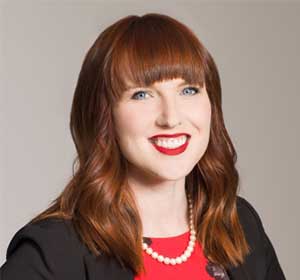What if you could just get a simple vaccine to prevent cancer?
Turns out, you can. But more on that in a second.
In the past couple of months, many celebrities have lost their battles with cancer. And in turn, social media newsfeeds overflowed with declarations of hatred for cancer — for taking David Bowie, Alan Rickman, René Angélil and many others — too soon. The reality is that cancer will most likely touch everyone’s lives more than once, whether it is our favorite celebrity, our best friend, a family member, or even ourselves. Cancer is the second leading cause of death in the United States, but we do little to prevent it. Even when we have scientific evidence telling us how to prevent it — like not smoking or eating processed meats, for example — we usually ignore the directives. We want to live for today and not think about cancer down the line.
We need to change our mindset and become more focused on prevention.
Right now there is a powerful tool to prevent certain cancers that we commonly overlook. This tool is the human papillomavirus (HPV) vaccine. But in Nevada, we are lagging far behind other parts of the country in our attempts to prevent HPV-related cancers. Nevada’s rate of HPV vaccination falls below the national average. Only about a third of girls and 1 in 6 boys in Nevada have completed the 3-dose HPV vaccine series.
This vaccine prevents cancer, yet a majority of Nevada’s preteens, teens, and young adults are not getting it.
HPV Prevention Isn’t Just for Girls
HPV is perhaps best known for causing cervical cancer. However, men are also at risk for HPV-related cancers. Men are actually four times more likely to suffer from HPV-related mouth and throat cancer than women. Other cancers related to HPV are anal, vaginal, vulvar, and penile cancers. Luckily, the HPV vaccine can help prevent HPV infections and ultimately the HPV-related cancers.
Routine HPV vaccination is recommended for boys and girls at 11 or 12 years of age. Vaccination is recommended at this age because it provides the highest production of protective antibodies and is before exposure to the virus occurs. Males and females through age 26 should also get vaccinated if they did not previously receive the vaccine or complete the series. It is important to vaccinate early, because approximately 75 percent of new HPV infections occur among people 15–24 years of age.
Immunizations are safe, effective, and have successfully reduced transmission of many deadly diseases. The same stands true for HPV vaccines. HPV vaccines are continually monitored for their safety and effectiveness. And if you think the idea of a vaccine to prevent cancer is revolutionary, consider this: The HPV vaccine is the second vaccine that can prevent cancer — the first being the Hepatitis B vaccine.
We have vaccines that prevent cancer. Now we need to get them, and encourage others to do so as well. Let us stop overlooking this simple tool, one that will prevent about 33,000 HPV-related cancers each year in the U.S.
So, what if you could just get a simple vaccine to prevent cancer? You can. The HPV vaccine prevents cancer.
It’s that simple.
Subscribe to our newsletter to get current immunization and health news delivered to your inbox, and stay connected to Immunize Nevada on Facebook, YouTube, Twitter and Pinterest.

